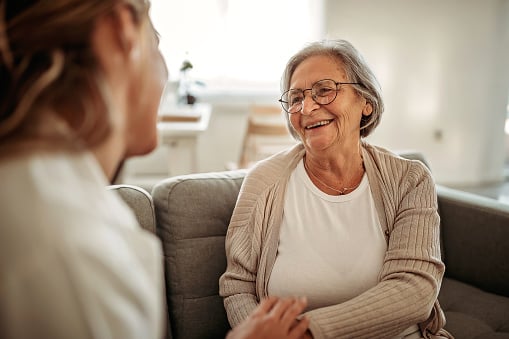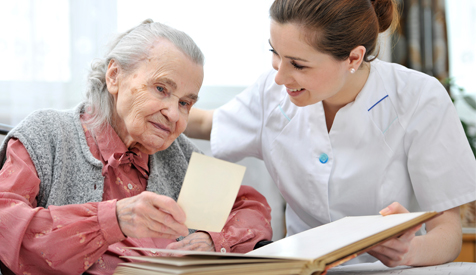What is AAC?
Augmentative and Alternative Communication (AAC) for Adults
Tags: Speech, Language, Communication, Support, Stroke, Caregiving, Brain Injury, talking, Communication Access, Speech therapy, Stroke recovery, Aphasia, Primary Progressive Aphasia
Care Partner vs Care Giver
Those caring for adults with speech, language, and cognitive challenges serve an important role in the healthcare management team. These challenges may be a result of medical diagnoses such as dementia, stroke, and ALS, or occur independently. No matter the etiology, support is often necessary to help individuals reach their goals. Due to the nature of this role, we are beginning to shift our perspective on how to most effectively refer to these individuals: care partner vs. care giver.
Tags: Speech, Language, Communication, Support, Stroke, Caregiving, Brain Injury, talking, Speech therapy, Stroke recovery, Aphasia, Primary Progressive Aphasia
Aphasia or Primary Progressive Aphasia?
Aphasia is a language disorder resulting from an injury to the brain, such as a stroke or head trauma. The outcome of aphasia varies significantly from person to person. The most predictive indicator of long-term recovery is initial aphasia severity, along with the lesion site (location of damage to the brain) and the size of the lesion
Tags: Language, Communication, Stroke, Caregiving, Brain Injury, talking, Communication Access, Speech therapy, Stroke recovery, Aphasia, Primary Progressive Aphasia
Supported Conversations for Adults with Aphasia (SCA)
If you know someone who is recovering from a stroke or other acquired brain injury, you may have experienced a heightened level of difficulty when participating in conversations. Aphasia, or language difficulties as a result of a stroke, can impact a person’s ability to express themselves or understand information. This breakdown in communication can lead to feelings of isolation and distress.
Tags: Speech, Language, Communication, Support, Stroke, Caregiving, talking, Communication Access, Speech therapy, Stroke recovery, Aphasia
Summer Activities to Practice Word-Finding for Those with Aphasia
Communicating with someone recovering from a stroke or maintaining skills after a neurodegenerative diagnosis may be difficult. Changes in communicative abilities can be either expressive (the ability to speak or communicate) or receptive (the ability to understand spoken or written information), leading to breakdowns in communication. Any changes in communication can lead to feelings of frustration, isolation, or distress. We offer some fun summer activities to help practice word-finding and repair communication breakdowns. These activities require little if any, materials or preparation to engage!
Tags: Speech, Language, Communication, Stroke, Brain Injury, talking, Speech therapy, Stroke recovery, Aphasia













